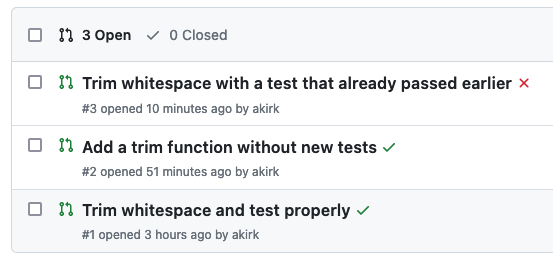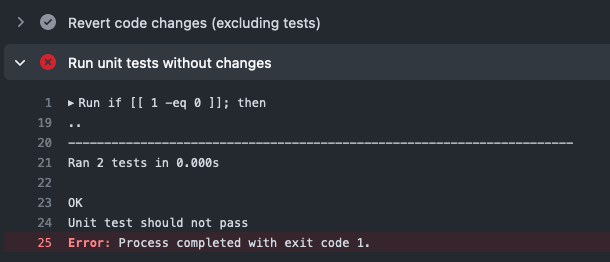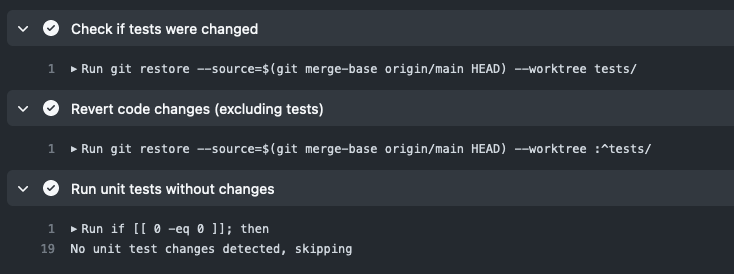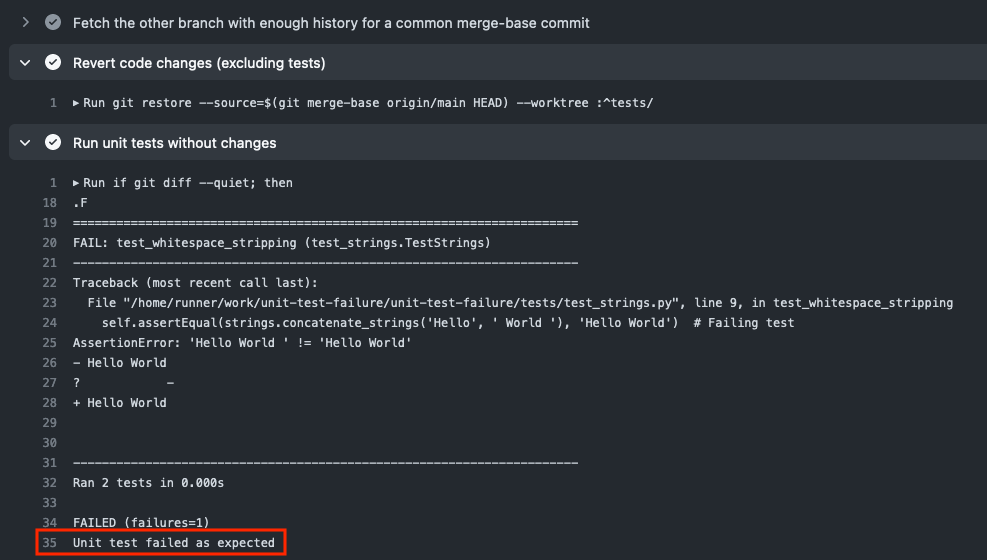When possible, I very much recommend adding unit tests to a Pull Request when you fix something as a way to prevent that it breaks again in future. This is no news.
One important step of adding that unit test, though, is to make sure it actually tests the bug you are fixing. Specifically, this means that you need to test that fact like this:
Keep the new unit test, undo the other code changes. The unit test now needs to fail.
If your newly introduced unit test still passes, then you didn’t expose the bug in the test. A simple check but often neglected.
A tooling solution
Here is how you can automatically test this in Github. I have created a sample repo with 3 pull requests https://github.com/akirk/unit-test-failure/pulls:

You can see the first one failed:

The problem is that the old code already passes the new tests. This means the tests don’t test the change.
The second one passes but only because no new tests were added at all.

And the third one does it correctly. The old code fails the new tests as desired:

Here is the code for the Github Action to test this:
name: Pull Request Unit Test Validation
on:
pull_request:
types:
- opened
- synchronize
jobs:
test-changes:
runs-on: ubuntu-latest
steps:
- name: Checkout code
uses: actions/checkout@v2
- name: Set up Python
uses: actions/setup-python@v2
with:
python-version: 3.9
- name: Run unit tests with changes
run: python -m unittest discover -s tests
test-without-changes:
needs: test-changes
runs-on: ubuntu-latest
if: ${{ github.event_name == 'pull_request' }}
steps:
- name: PR commits + 1
run: echo "PR_FETCH_DEPTH=$(( ${{ github.event.pull_request.commits }} + 1 ))" >> "${GITHUB_ENV}"
- name: Checkout PR branch and all PR commits
uses: actions/checkout@v3
with:
ref: ${{ github.event.pull_request.head.sha }}
fetch-depth: ${{ env.PR_FETCH_DEPTH }}
- name: Set up Python
uses: actions/setup-python@v2
with:
python-version: 3.9
- name: 'Fetch the other branch with enough history for a common merge-base commit'
run: git fetch origin ${{ github.event.pull_request.base.ref }}
- name: Check if tests were changed
run: |
git restore --source=$(git merge-base origin/${{ github.event.pull_request.base.ref }} HEAD) --worktree tests/
if git diff --quiet; then
echo "TESTS_CHANGED=0" >> "${GITHUB_ENV}"
else
echo "TESTS_CHANGED=1" >> "${GITHUB_ENV}"
fi
git restore .
- name: Revert code changes (excluding tests)
run: git restore --source=$(git merge-base origin/${{ github.event.pull_request.base.ref }} HEAD) --worktree :^tests/
if: ${{ env.TESTS_CHANGED }} == '1'
- name: Run unit tests without changes
run: |
if [[ ${{ env.TESTS_CHANGED }} -eq 0 ]]; then
echo "No unit test changes detected, skipping"
exit 0
fi
if python -m unittest discover -s tests; then
echo "Unit test should not pass"
exit 1
else
echo "Unit test failed as expected"
fi
Thanks @jesusamieiro-com for pointing out that you need to be careful with this for code that adds new test coverage. Probably best to use a Github label to activate or deactivate this action.
Leave a Reply
Only people in my network can comment.